The cost of a meeting isn't just the time it takes
This is a meeting:
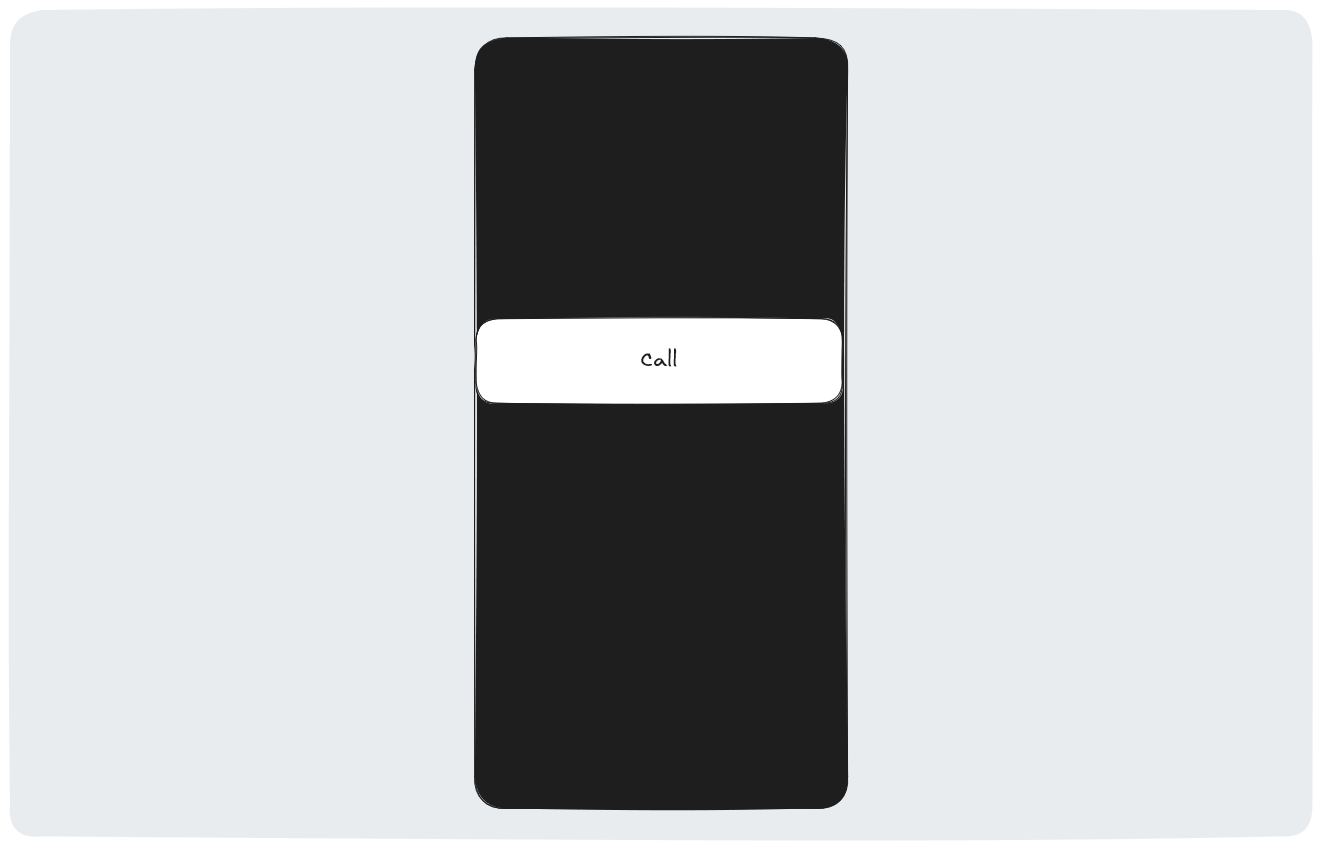
But in my brain, and maybe in some other people's brains, it looks like this:
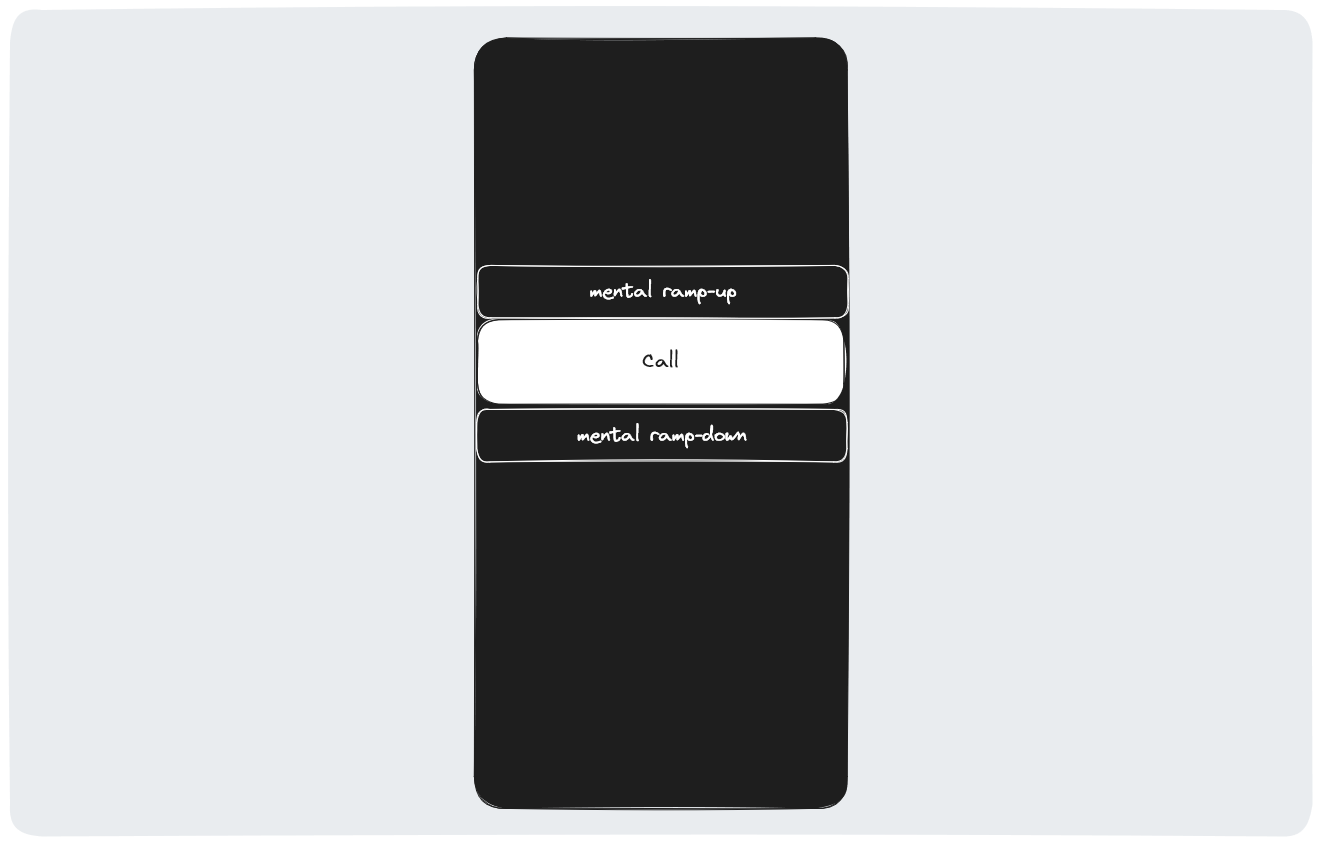
Really, this is what a meeting looks like to me:
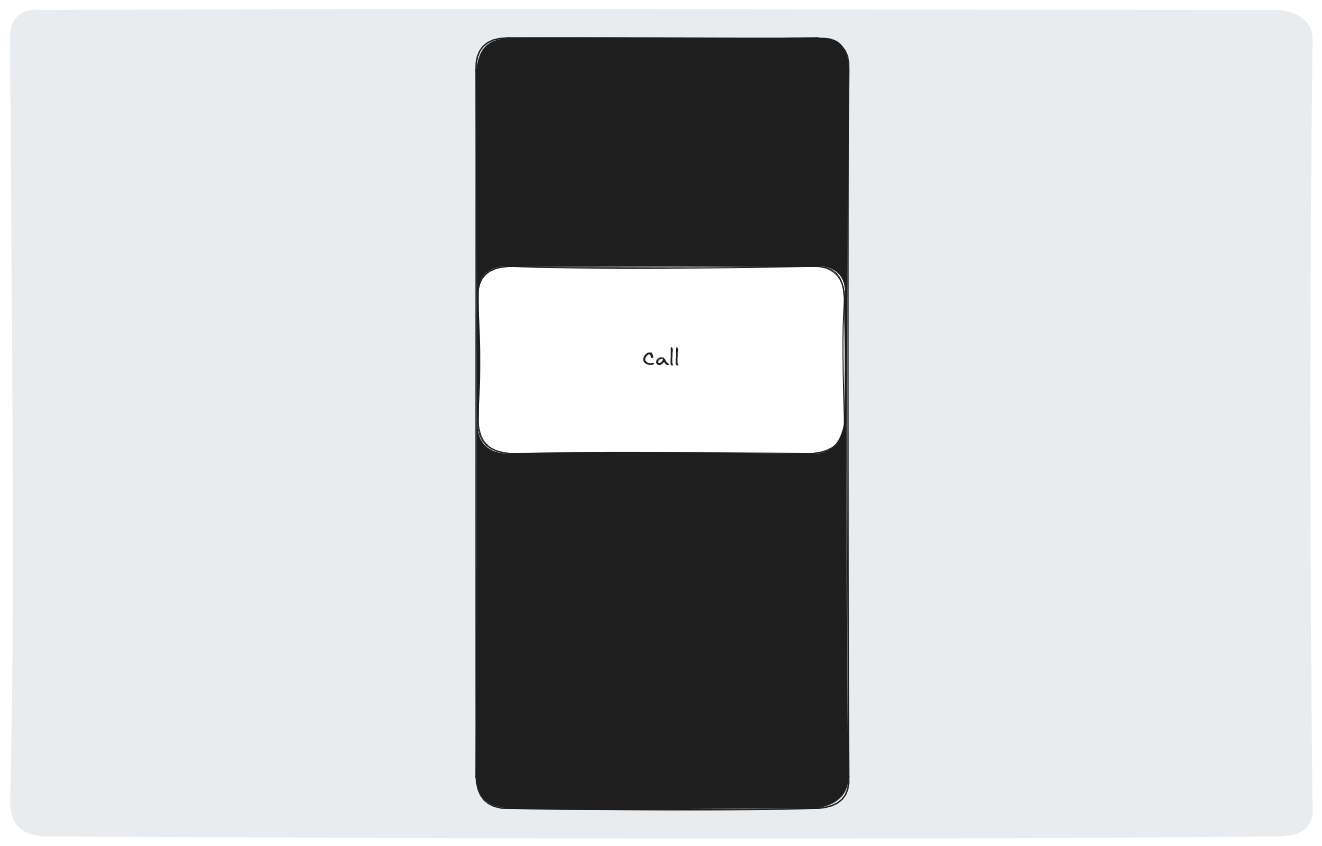
And if you have several of them, and they're spread around the day, this is what really happens:

It's probably possible to eliminate the "ramp-up" context switch if the meeting is spontaneous and you can't predict that it will happen. But I think that'll just result in you always anticipating being interrupted and never getting any "deep work" done.
Some people think of it like this:
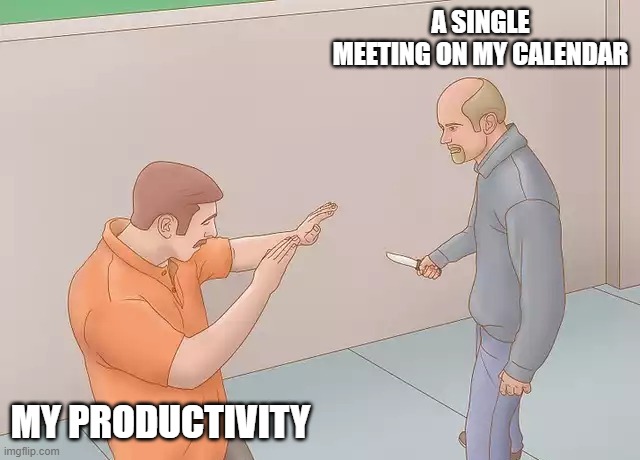
I don't think meetings are useless (the more I transition from "just" writing code to also coordinating, and coordinating with, other people, the more time I feel can be, sometimes, occasionally, not very often, saved by having a meeting), but this ramp-up and ramp-down time is pretty bad.
With a fragmented meeting schedule, this is how the day's time gets broken down:
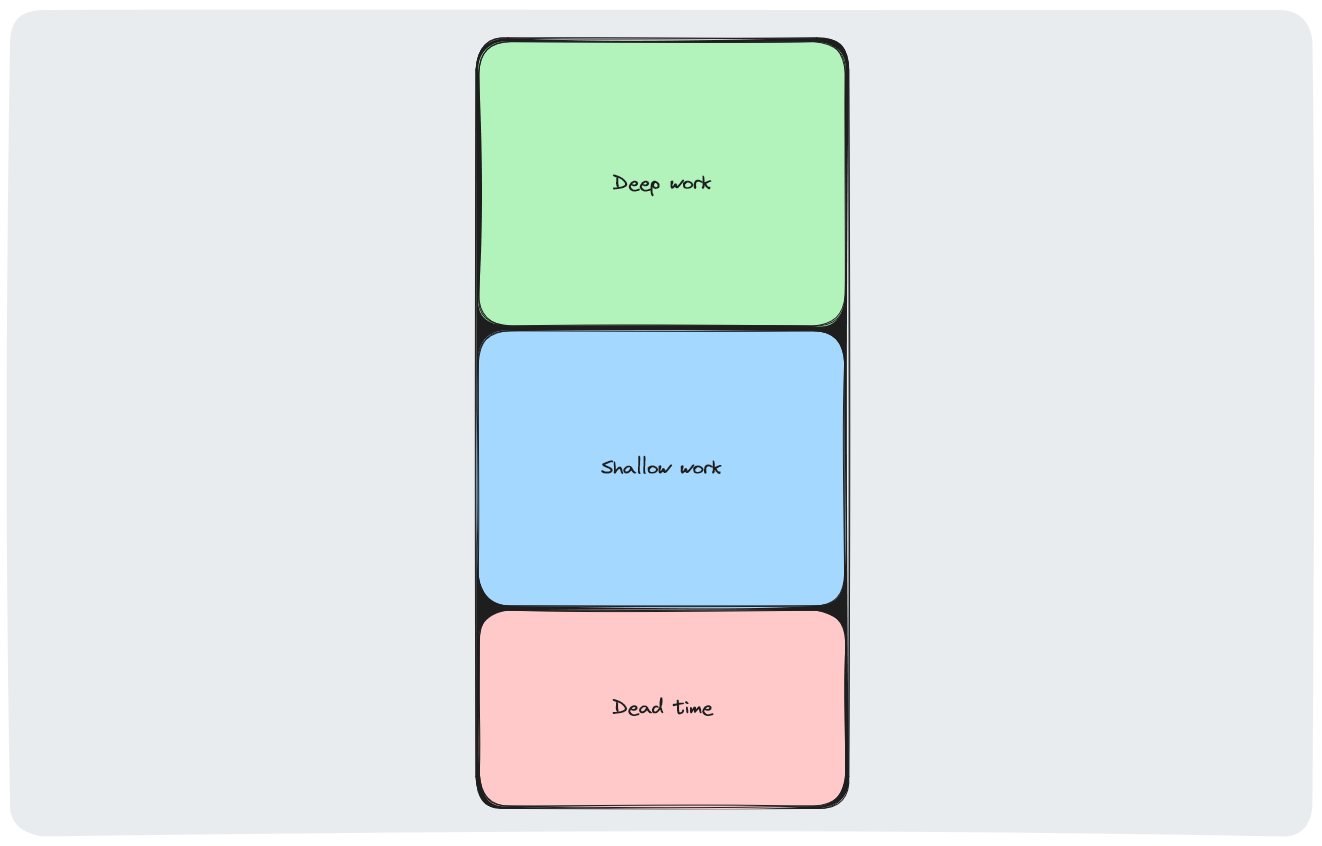
But, if the meetings were to all be bundled together, this is what we get:
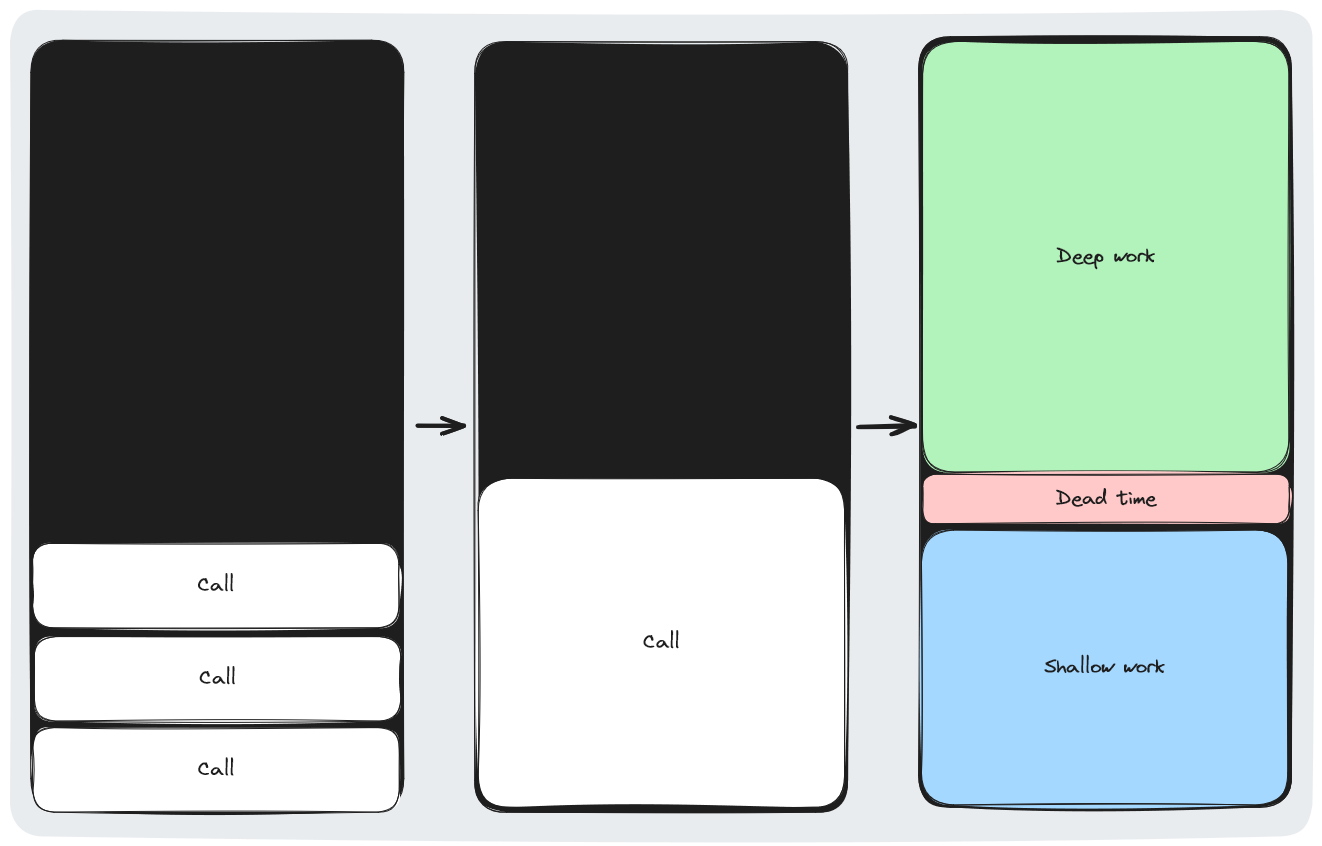
Paul Graham's "Maker's Schedule, Manager's Schedule" proposes that this is done by having a separate "office hours" block. I'm currently lucky enough that the people I usually have meetings with are all in the US, so during my European mornings I'm blissfully free to do deep work, which is also the time when my brain hasn't yet run out of juice.
Back when we were fundraising for our startup and having calls with potential investors, I kept thinking about writing a calendar scheduler that would try and bundle up meetings closer together, with some simple heuristics: first, prioritize having full days without meetings, then half days, then try for slots that are right next to an existing meeting.
Calendly feels too impersonal for that, so maybe it could use one of these newfangled LLMs to generated that dreaded "We can do between 9-11am your time on Thursday or 9-10am on Friday, assuming you're in the Pacific time zone, or we can look at next week - let us know what works and I'll send a Zoom invite" boilerplate (which is also impersonal, yeah).
Or we could both point our automated, deep-work-maximizing, schedulers at each other and let them duke it out.
That's it. I'm going to go and not have a meeting now.